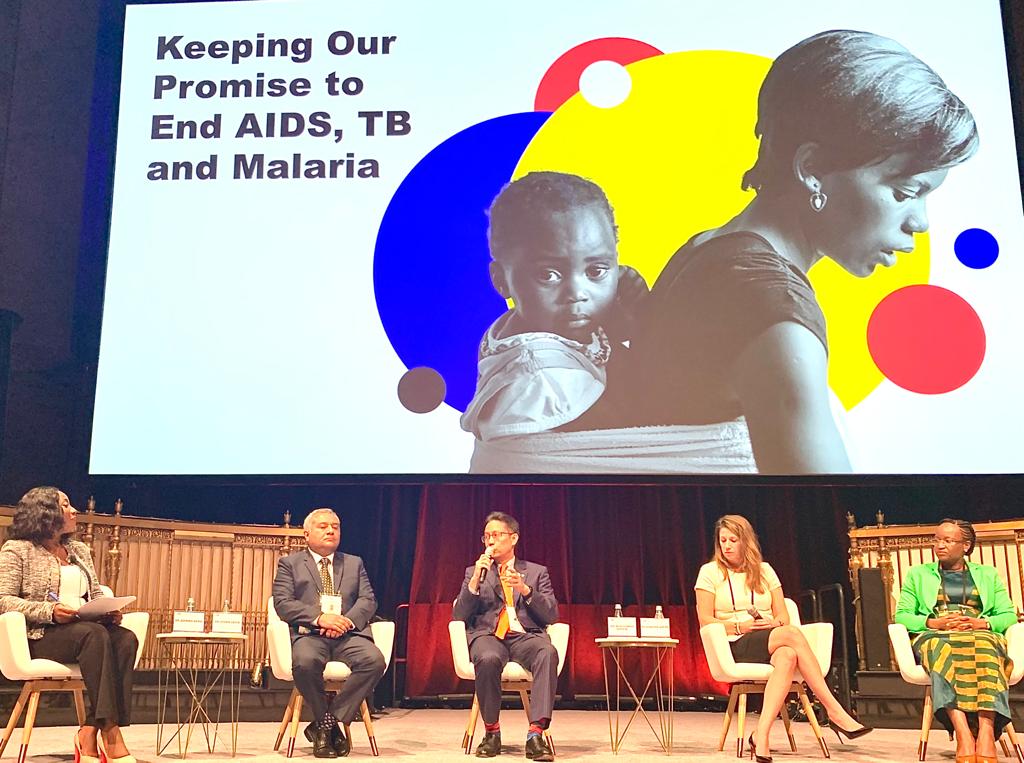New York, September 20, 2022
Efforts to achieve the goal of controlling HIV / AIDS, tuberculosis and malaria will continue to be pursued until 2024. Indonesian Health Minister Budi G. Sadikin said that this goal can be achieved with the support of the leadership and accountability of provincial authorities and district governments.
“The leadership and accountability of local governments at the provincial and district level are the keys to Indonesia’s success in overcoming HIV, tuberculosis and malaria in a decentralized health system in the country,” Health Minister Budi said at the meeting. 7th Global Fund replenishment conference in New York, USA (9/18)
It is hoped that by the end of 2024 the goal of 90% detection and 90% treatment of HIV / AIDS will be achieved. Likewise, the goal of 90% case finding and 90% tuberculosis treatment.
The current condition, in 2022, for new cases of tuberculosis is 286 thousand of the 824 thousand cases detected, the remaining 537 thousand cases have not been detected. The same goes for HIV / AIDS. This year, from the target of 97 thousand cases detected, only 13 thousand (13%) were found. Meanwhile, positive cases of malaria and the annual parasite index (API) tend to rise, especially in eastern Indonesia. Positive cases of malaria increased by 50,000 cases from 2020 to 2021.
In pursuing the goal of eliminating HIV / AIDS, tuberculosis and malaria, the government is assisted by the Global Fund as a partner in health development in Indonesia. Since 2003, $ 1.45 billion (Rp 20.89 trillion) has been donated to the Ministry of Health and the community, particularly for programs to fight HIV / AIDS, tuberculosis and malaria.
Currently, the Global Fund’s investment in Indonesia is the second largest in Asia after India. The amount of funds according to the burden of the disease and the economic level. Currently, Indonesia is in the position of a middle-income country with a high burden of disease.
In HIV / AIDS, GF helps improve HIV services, case finding, ARV treatment and care, as well as outreach in the field. Up to the end of June 2022, 473,005 HIV-positive people were found and 163,562 HIV-positive people were being treated.
In tuberculosis, GF helps procure first- and second-line anti-TB drugs, preventive therapy drugs, microscopic diagnostic tools, and TCM, to accelerate TB case research by screening at public and private health facilities in 80 districts / cities in 19 provinces with high TB workloads and a large number of private health facilities.
In malaria, GF assists in rapid testing (RDT), screening of pregnant women in areas of high endemism, creation of malaria posts, capacity building for human resources and the distribution of 27 million bed nets treated with insecticides (LLIN) in malaria endemic areas.
GF’s latest support is to assist the Ministry of Health in building genome sequencing capabilities for more accurate identification of viruses and bacteria. With the sequencing of the genome, a genetic model of the genome will be obtained, the identification of new mutations, the tracing of the origin and the prevention of viral and bacterial transmission.
Total genome sequencing capacity in the country is expected to be available for 57 machines by the end of 2022, including those supported by the Global Fund and spread across various provinces.
“In the future, the sequencing equipment will be used for the development of hospital services, the development of HIV detection, the detection of acute hepatitis cases of unknown etiology, and cases of acute renal failure and other comorbidities.” added the Minister of Health
The Global Fund raises and invests money over a three-year cycle known as the Replenishment. This three-year approach was adopted in 2005 to allow for more stable and predictable funding for countries and to ensure the continued viability of the program.
This news was broadcast by the Communications and Public Services Office, Ministry of Health of the Republic of Indonesia. For more information, contact the Halo Ministry of Health hotline number via hotline 1500-567, SMS 081281562620, fax (021) 5223002, 52921669 and email address [email protected] (NI).
Head of the Communication and Public Service Office
dr. Sites Nadia Tarmizi, M. Epid
–


